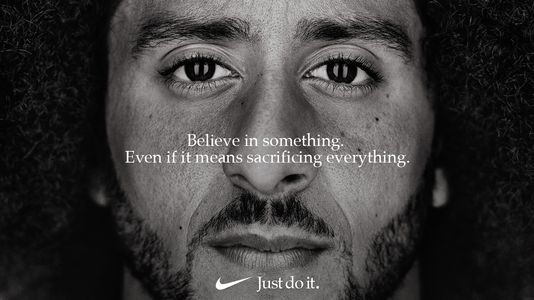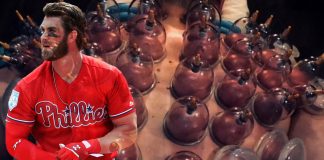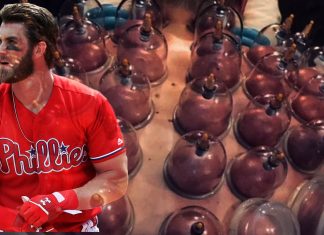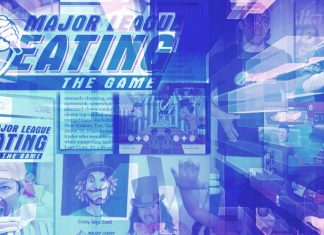You may have missed this week’s news that McGill University, “the Harvard of Canada,” has [after 91 years] decided that calling themselves the “Redmen” is suddenly insensitive and reflects poorly upon an institution of education. This brings them into the 21st century, just eighteen years late. Given that the decision comes over a decade after most NCAA programs did the same, it’s hardly laudable…yet for some it remains a mystifying source of controversy.
Perhaps the wettest of Canadians’ favorite wet dreams is being perceived as the progressive utopia that makes progressive Americans both embarrassed and envious. Historically, there’s been some evidence supporting this notion: universal healthcare, gay marriage, and recreational cannabis are all issues Canada has approached more progressively than its southern neighbours. But there are sizable and often embarrassing interruptions of Canadians’ utopian fantasies.
Canada has its own lengthy history of racist behavior towards Asian people, Jewish people, Arabs, and African Americans that we don’t like to talk about. But our dirtiest secret? It’s that Canada fails its indigenous residents worse than America fails African Americans (though not American Indians). Despite what we Canadians were taught growing up, instead of treating indigenous people better than Americans, we just killed them more slowly: by disenfranchising them, stamping out their culture, and, at times, denying them basic human rights.
The reaction has been predictable. The general consensus seems to be casually supportive of the change, but, of course, a vocal population has slammed the university for turning their back on tradition and history. One definitely-not-mad commenter on the Montreal Gazette’s article identified himself as an alumnus and declared, “[I]t is certain the university will never see another donation from me, and I hope others do the same.” The common refrain from this faction is that the university has completely and wantonly abandoned its own history by moving away from a nickname.
I am a historian by trade, and the notion that the university is turning its back on its own history is ridiculous. McGill still remains the proud school that ranks in the top 50 worldwide institutions and took part in the first recorded competitive football game in U.S. history. None of this has changed. Instead, what the university has turned its back on is 90 years of an unimaginative nickname coined by a reporter referring to the color of the team uniforms. More importantly, the university is turning its back on 70 years of often-explicit association with a pejorative reference to indigenous people.
What’s most frustrating about the protest against this name change is the argument at its core: “the PoCo Police Libtard Cucks have applied a negative meaning where it was never intended!” Ethical dimensions and the placement of events in proper historical perspective are big points of emphasis in high school study. In my own classroom, I particularly encourage students not to just apply our modern standards to events in the distant past.
Yet when you hear the issue framed like the university’s president did today, only prejudice or ignorance could motivate an argument against. To wit:
“McGill did not adopt the Redmen name as a reference to North American Indigenous Peoples,” wrote university principal and vice-Chancellor Suzanne Fortier. “However, the name has been associated with Indigenous Peoples at different points in our history. Today, ‘Redmen’ is widely acknowledged as an offensive term for Indigenous Peoples, as evidenced by major English dictionaries. While this derogatory meaning of the word does not reflect the beliefs of generations of McGill athletes who have proudly competed wearing the university’s colours, we cannot ignore this contemporary understanding.” (Vice)
Universities are alleged to be liberally leaning in their educational methods encouraging experimentation on the cutting edge of science, technology, and society. They’ve been pariahs for conservatives since erupting like a volcano in America during the Vietnam War. To continue occupying this role in society, educational institutions need to evolve with the times, and being 14 years behind the NCAA in respecting indigenous peoples is hardly cutting-edge.
Since 2005, the NCAA has had a ban in place on mascots that were deemed racist and offensive, specifically in regards to indigenous people. This forced universities like Arkansas State, Adams State, Colorado State-Pueblo, Louisiana-Monroe, and Stanford to, in the words of that proud McGill alumnus reading the Montreal Gazette, also exhibit “no sense of the university’s heritage” and kowtow to “the small but vocal minority.”
it’s worth noting that the NCAA’s work on this issue has been far from perfect. Confusion still remains over why some schools have kept their nicknames, and what exactly is deemed acceptable. One loophole allows schools to keep a reference to a specific tribe with the blessing of that tribe’s leadership, though at times there have been accusations of strongarm tactics if resisted. More often, schools do the bare minimum to comply, either changing their name on the surface while using their old name tongue-in-cheek, like the University of North Dakota, or by simply removing explicit indigenous imagery from their branding and claiming their name has nothing to do with it, like William and Mary or the University of Illinois. Up until now, McGill had been content to follow the latter strategy. Unfortunately, even in the best case scenarios this process often devolves into a bunch of white people calling the shots on issues over which they shouldn’t have no agency.
Hell, the University of Massachusetts determined that Redmen/women was unacceptably racist 47 years ago! Carthage University in Kenosha, Wisconsin, likewise changed their nickname from the Redmen, though they only went as far as to change it to the “Red Men.” Yet here we are, arguing over the merits of one of the world’s finest universities following the example set by an American university almost half a century later, because, well, that was them, not us. They may have realized that they are racists, but that doesn’t mean we are!
Here are the nuts and bolts of this issue. McGill has a long and proud history. Redmen has been the nickname for a long time, and it was very clearly not coined as a racist term. No one is arguing that, not even the most hardline activists in favor of the name change. One of the most pervasive and frustrating trends in the 21st century is the creation of fictional arguments to defeat and prove the opposite, which seems to pretty clearly be the case here.
Making up for the historically horrible treatment of indigenous Americans is one of North America’s most pressing issues, and it’s worth revisiting anything that serves as a barrier to that impossible yet necessary objective.
Finally, “Redmen” is a dull nickname anyway. It’s one of countless names out there that was creative enough to describe the colors the team wore back in the day. Unfortunately, it then was appropriated by the university to accompany indigenous imagery. No one can distance the nickname from racism entirely, nor can anyone reasonably argue that it’s always been racist. But what year do we want to live in, 2019 or 1950? I, for one, happily choose the former.













